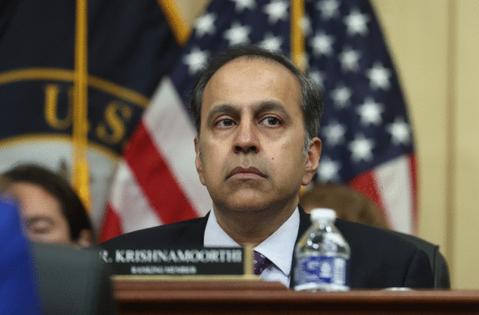US says shutdown ended lawmaker ICE facility visit requirement
Published in News & Features
WASHINGTON — The Trump administration has claimed the partial government shutdown also means the end of a requirement that Immigration and Customs Enforcement give congressional access to detention facilities for oversight visits.
The government made the argument in a legal clash with Democratic lawmakers, who had filed a lawsuit against ICE over access to real-time inspections of the facilities and new department guidance that requires at least seven days’ advance notice of a visit.
The lawmakers based that lawsuit on Section 527, a provision included in the fiscal 2024 spending law and applied to funding in the continuing resolution for fiscal 2025, which states that no funds can be used to prevent members or their staffs from entering immigration detention facilities for oversight.
But now the Trump administration says the provision expired on Oct. 1 along with the spending law, and ongoing spending is “not subject to the expired general provision known as Section 527,” according to a notice and declaration from ICE official Ralph Ferguson.
“With the expiration of the FY2025 Continuing Resolution, ICE is no longer using for detention operations (including the adoption and implementation of the Congressional visitation protocols at issue in this action) any funds that were appropriated subject to Section 527,” Ferguson states in the declaration.
The government’s stance that the section has expired, if applied more broadly, could extend to some of the dozens, and sometimes hundreds, of provisions in spending bills that define how the federal government can use funds, commonly known as “riders.”
The same appropriations law includes provisions such as how DHS can lease or renovate buildings, how money can be moved between accounts, and prohibiting alterations on the oath of citizenship and the spending of government funds on pornography.
The government filed the notice in the lawsuit as Judge Jia M. Cobb of the U.S. District Court for the District of Columbia was deciding whether to grant a request for her to temporarily halt the new DHS guidance on lawmaker visits based on Section 527. At a hearing on that request, Cobb asked if the case would be moot if there was a government lapse.
Ferguson, in his declaration, said that while ICE is incurring obligations for detention in advance of a fiscal 2026 spending bill that reopens the government, that is not subject to the expired Section 527.
And he said certain ICE operations are being funding through money in the reconciliation package, “a distinct source of funding with defined amounts for specific purposes.”
The package signed into law by President Donald Trump on July 4 included $45 billion to ICE for expansion of detention capacity, which some critics said did not have adequate checks on how DHS used the funds.
While the Trump administration has made several moves during the shutdown that raised questions — such as diverted military appropriations to ensure paychecks for the troops went out on time — this appears to be the first time it has argued spending bill provisions are not in force during a shutdown.
David A. Super, a Georgetown Law professor who focuses on administrative and constitutional law, called the Trump administration’s argument “remarkably aggressive” and said it would mean “appropriations riders will cease to have a great deal of meaning in many important settings.”
Super said that normally the restriction would keep ICE from using any funds — or anything bought with those funds — from blocking congressional access.
It is “fairly unlikely” that denying entry to members of Congress would not use restricted funds, “because excluding someone requires you to use a computer that may have been bought with those funds, or put up a barrier that was bought with those funds, or threaten to arrest someone with a bullhorn that was bought with those funds,” Super said.
Super also said that in prior government shutdowns, the government has operated to largely keep the status quo, rather than assert broad new authority.
In response to the government filing, Cobb ordered both sides to file a report by Oct. 27 on the issue, giving a chance for the lawmakers to respond, as well as asking whether the legal challenge should be paused during the shutdown.
The lawsuit, filed in July, argued that the federal government had illegally denied members of Congress entry to ICE detention facilities after a flurry of high-profile clashes and denials of entry.
That included federal charges against Rep. LaMonica McIver, D-N.J., accusing her of interfering with federal law enforcement officers, for which she has denied wrongdoing.
Rep. Raja Krishnamoorthi, D-Ill., said ICE officials denied him entry Oct. 13 to do oversight of the ICE facility in Broadview, Ill., just days after a video showed a violent detention of a 15-year-old constituent.
“Once again, the Trump Administration slammed the door on transparency and accountability,” Krishnamoorthi said in a news release. “Congress and the American people have every right to see what’s happening behind those walls.”
©2025 CQ-Roll Call, Inc., All Rights Reserved. Visit cqrollcall.com. Distributed by Tribune Content Agency, LLC.







Comments